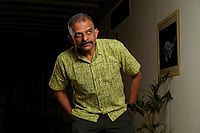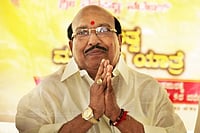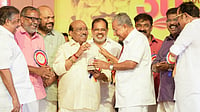
Gopinathan, who quit the IAS in 2019 citing the denial of civil liberties in Kashmir, says joining the Congress is a natural continuation of his commitment to democratic values.
When I listen to Rahul Gandhi speak about the dignity of every Indian, about protecting the Constitution, about standing up for the vulnerable, about questioning power, I hear my own concerns articulated.”
Gopinathan says true change requires engaging from within the system — to rebuild trust, empower youth, and defend institutions against authoritarianism.
It has been six years since Kannan Gopinathan resigned from the Indian Administrative Service (IAS) in August 2019. The officer from the AGMUT cadre, who had joined the service in 2012, stepped down “over the denial of freedom to the people of Jammu and Kashmir”.
In the wake of restrictions imposed in Jammu and Kashmir following the revocation of Article 370 and the bifurcation of the state into Union Territories, Kannan submitted his resignation in protest while serving as an IAS officer in the Union Territory of Daman and Diu.
He was only 33 when he resigned; today, at 39, his resignation has still not been accepted by the government. Instead, he has received multiple notices ordering him to return to duty on the grounds that his resignation remains unapproved. Kannan had earlier called this government action a form of harassment and has refused to comply, saying he is willing to serve the public voluntarily—such as during the Covid-19 crisis—but not as an IAS officer.
An electrical engineer from the Birla Institute of Technology, Mesra (Ranchi), Kannan’s journey towards political and social engagement has been one of gradual realisation. After completing his engineering degree in 2007, he worked at Freescale Semiconductors while volunteering at an NGO in Noida, teaching underprivileged children.
Since leaving the service, he has founded a knowledge-based start-up and provided strategic consulting to financial institutions and private enterprises.
In an interview, Kannan Gopinathan speaks to Outlook about his decision to join the Indian National Congress, his evolving understanding of politics, and what continues to drive him six years after his act of protest.
After your resignation, you had decided not to join any political party. What has changed, and why the Indian National Congress? What influenced your decision to join the Congress?
When I resigned from the IAS, I was clear about what I opposed — the lockdown in Kashmir, the denial of fundamental rights, the atmosphere of fear. These were deeply wrong. I could not stay silent. I needed my freedom of expression back. So I stepped out, began speaking, travelling, meeting people, and joining movements.
I did not know what would come next. I come from an ordinary middle-class background. My father was a clerk with the Kerala government; my mother a homemaker. The expected path was simple: study, become an engineer, get a job, marry, settle down. I followed it, became an IAS officer, and then left that too.
In the civil service, you can improve systems, help people, and run programmes. But you cannot challenge the country’s fundamental direction. You cannot question when the government itself becomes the problem. That was the limit I reached. Outside the system, questioning also has limits. Raising issues is one thing; turning them into real change requires organisation and political power.
Knowing what is wrong is one thing; discovering what is right is another.
These years have been a journey of self-discovery. I have met activists, students, farmers, workers, civil society members, and political leaders, including from Congress. I have listened more than spoken.
Some principles guide me: the dignity of every individual is non-negotiable; the rights and equality of all citizens are non-negotiable; citizens must have the freedom to dream of a better tomorrow and work towards it. The government should enable that dream, not suppress it.
Where does this vision belong today? I see it in Congress, in its history and goals. When I hear Rahul Gandhi speak about dignity, protecting the Constitution, standing up for the vulnerable, and questioning power, I hear my own concerns reflected.
I had fears. Would joining a political party silence me? Would I lose the voice I resigned to protect? I have no traditional political experience. But the greater risk is staying outside. If people like me stay away, the field is left to those who do not share these principles.
This decision is not about suddenly feeling confident in politics. I am still learning. But the fight for the India I believe in, where every citizen has dignity and the freedom to act, must happen inside political institutions, not only outside them.
The government hasn’t approved your resignation. Why do you think so?
Yes, it hasn’t been accepted. It was a simple resignation. It should have been accepted. I believe the government is in a better position to answer why it hasn’t been.
It does seem like you’re following in the footsteps of other bureaucrats who have left the service to join political parties. Is it because you believe change can happen only from within politics?
I would not say change happens only through political parties — that is too simplistic, and my experience shows otherwise. When we taught children in the slums, we believed we were making a difference. But helping one child meant ten more needed support. That’s why we prepared for the civil services — to scale our impact.
As an IAS officer, I acted. I turned a loss-making electricity company profitable, set up disaster management systems, ensured clean elections, and established a badminton academy in Mizoram producing national champions. During the Kerala floods, I could respond swiftly because the system gave me resources and knowledge.
Yet I hit its limits. I could not speak freely under an authoritarian government. My voice, meant to serve people, was being silenced. So I resigned.
Since then, I’ve returned to grassroots work — speaking, organising, and joining movements. The anti-NRC protests showed the power of ordinary citizens and youth saying, “This is not the India we want”. Movements shift opinion, but turning that into laws requires political power, which comes through parties.
Democracy needs all its parts: civil society, activists, judiciary, media, and political parties. I have worked in volunteering, the private sector, civil service, activism, and a tech start-up. Now: politics. I may succeed or fail, but I cannot stand by while constitutional values are under threat.
My criticisms are never of parties themselves, only of actions that violate democratic principles. I’ve spoken out against BJP abuses and even criticised Congress in my youth. Today, questioning authority carries real risk. My fight has always been against authoritarianism, majoritarianism, and silencing dissent.
Joining a democratic party is a calculated risk. I will retain my independence, challenge injustice from within, and continue fighting for dignity, equality, and the right to question power. I am changing the battlefield, not my principles.
It is not a perfect reconciliation, but it is an honest one.
What role do you see for youth and civil society in shaping India’s future, and how can the Congress Party facilitate this?
Youth and civil society are not peripheral to India’s future. They are India’s future. We are at a critical juncture.
The CAA-NRC protests were deeply inspiring. Young people across the country, from students to working professionals, many new to political action, came forward guided by conscience rather than party lines. That is the energy India needs.
The challenge is to channel it into sustained political engagement without diluting it. Young people care about real issues — employment, education reform, digital rights, social justice. Rahul Gandhi’s Bharat Jodo Yatra showed what direct engagement can achieve. It inspired people, created connection, and gave them a reason to believe in Congress as more than a party.
But the yatra is a moment. What is needed now is a movement where that inspiration can translate into sustained involvement. Spaces must exist where those who felt that connection can contribute to shaping Congress.
Civil society brings grassroots understanding, moral clarity, and insights often lost in political compromise. Congress must engage with it as a partner, not only during elections. I have seen this personally — meeting people, attending talks, and engaging with activists has been invaluable. That knowledge should inform decision-making.
What would you like to do in the Indian National Congress? Any specific role in mind?
Honestly? I don’t know the specifics yet. And I think that’s fine.
I’ve never entered anything with a predetermined role. The work defines the role, not the other way around.
What I know is what I care about and what I can contribute.
I have lived across India — I am from Kerala, studied in Jharkhand, worked in Noida and Delhi, married a woman from Haryana, served in Mizoram and Daman and Diu, and now live in Pune. I have learnt languages, connected with people from diverse backgrounds, built movements, organised campaigns, spoken at universities, and engaged with activists and citizens.
I also understand how systems work, having been inside the administration, and I have seen how citizens experience governance outside it. I believe I can help create a place in Congress for people who believe but do not yet belong. Building spaces where they can contribute and feel ownership, not just be foot soldiers, is vital.
I also want to strengthen democratic processes, focusing on electoral transparency, institutional independence, and protecting dissent.
Whether through organisational work, policy, communications, coalition-building, or something else, I will do it. I enter a world I do not fully know, but with clear principles and a willingness to contribute wherever I can.
How do you view the current political climate, and how can you help promote inclusivity and democratic values?
The current political climate is deeply worrying. Democratic norms are eroding, from treating dissent as sedition, to using central agencies against opponents, to marginalising minorities and the oppressed. What is most alarming is society’s acceptance of this as normal. Entire states can be locked down without communication, journalists arrested for reporting, and fundamental rights violated, and we move on after brief outrage. This normalisation of democratic decay is the real crisis.
Opposing the government is important, but not enough. We must promote a vision of India where diversity is strength, not a problem to be solved. Our multiple languages, religions, cultures, and identities are not obstacles; they are our heritage. Inclusivity means celebrating diversity, protecting minority rights, and ensuring equal citizenship for all.
Dissent is patriotism. A democracy’s health is measured by how it treats those who question it. Institutions must be independent, rights expanded, and citizens’ freedoms protected. Economic development and security are vital, but never at the cost of democracy or civil liberties.
I aim to contribute by asking difficult questions, fostering alliances, and encouraging political engagement at all levels. Real inclusivity requires listening to voices we might disagree with, engaging with communities we might not understand, and questioning our own biases. Speaking up is not optional; it is essential to being a patriot.
How can the Congress rebuild trust among young voters?
Young people are incredibly sensitive to hypocrisy. For Congress to rebuild trust with them, we must walk the talk on internal democracy.
And we must be patient. Trust takes time to build, especially when it’s been broken repeatedly.
But if we are serious about democratic renewal, if we’re willing to change, to empower rather than control young people; then there’s hope. I don’t think young people are looking for perfect political parties. They’re looking for honest ones, genuinely trying to be better.
As a final question — will you take on a national role, or would you prefer to work in your home state of Kerala?
I haven’t thought that far ahead, to be honest. And perhaps that’s not the right way to approach it anyway.
Kerala is home. I’m from Kottayam — from Puthuppally, specifically. I grew up seeing what dedicated political work looks like.
But right now, I live in Pune. My life and work have taken me across India. The issues I’ve engaged with — Kashmir, the CAA-NRC, democratic rights, electoral transparency — have taken me to 80 or 90 districts across the country.
The work is what matters. And right now, the work of defending democratic values — of creating space for citizens to dream and work towards a better India — is needed everywhere.
So, as of now, the country is my constituency. Wherever I can be of use, wherever the party believes someone with my background and concerns can contribute meaningfully, I’m willing to work there.
Let’s see where I can be most useful.











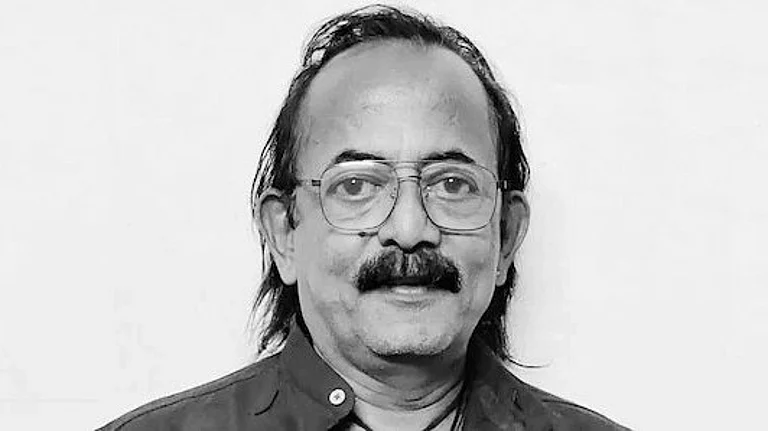
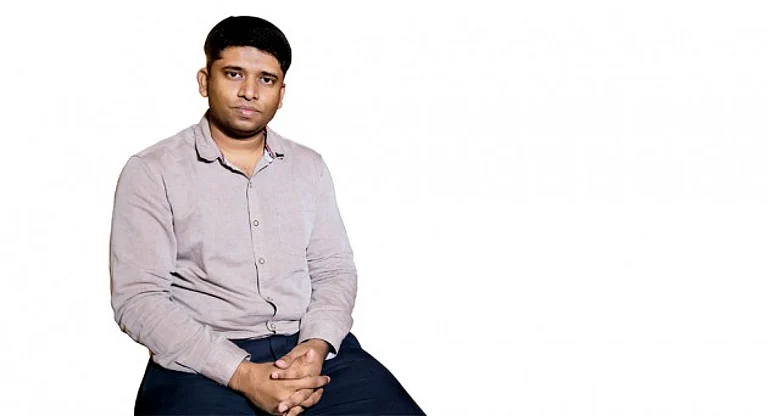



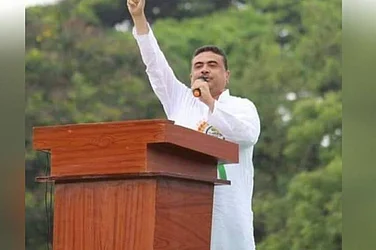
.png?auto=format%2Ccompress&fit=max&format=webp&w=376&dpr=2.0)




